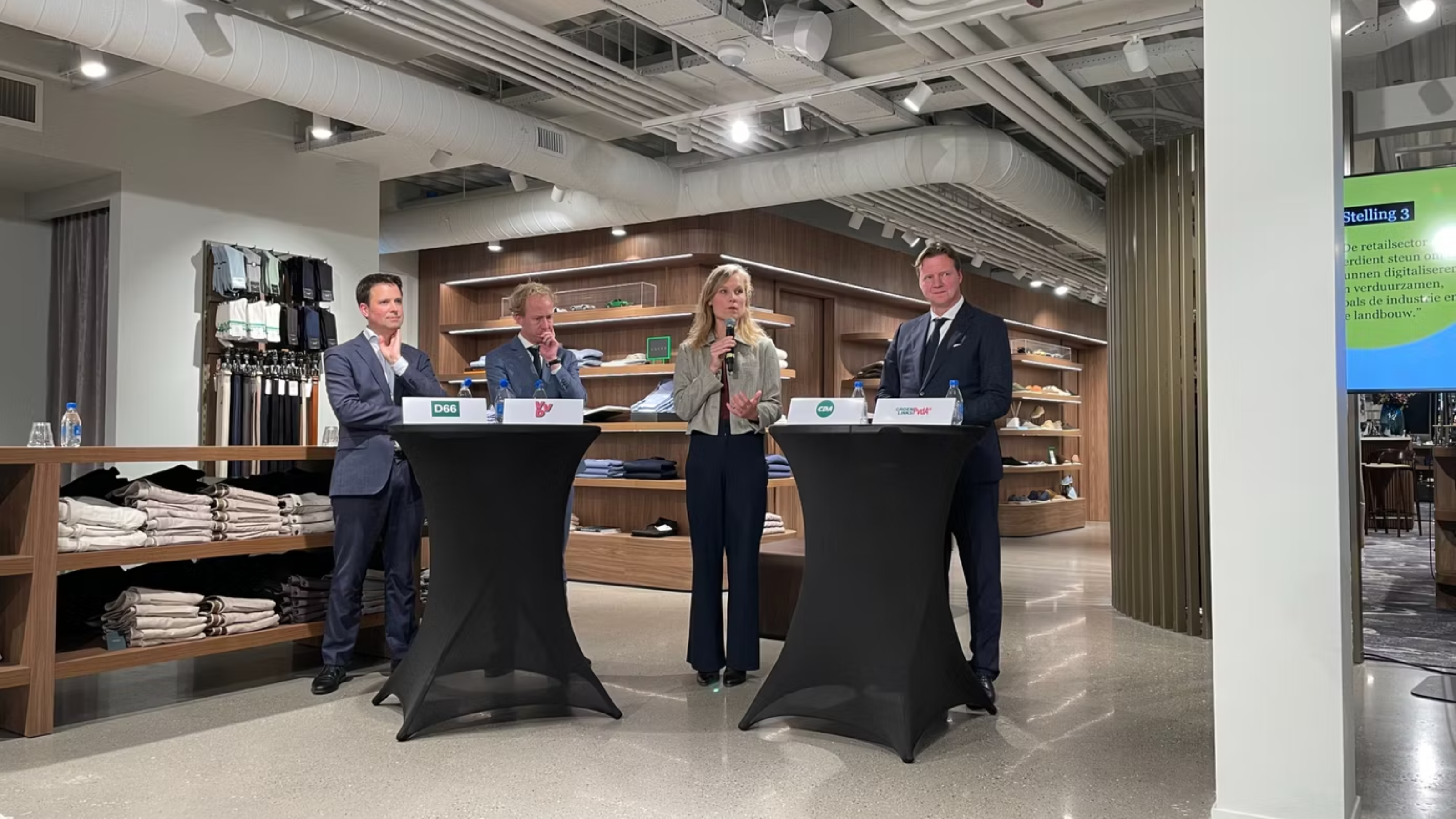The debate, organized by industry association INretail, took place at the recently renovated Broekman store on Elisabethstraat in Utrecht. Among those present were Marco Esser (GroenLinks–PvdA), Jantine Zwinkels (CDA), Arend Kisteman (VVD), and Joost Sneller (D66). Notably, several parties from the outgoing cabinet were absent—even though their perspectives are equally important in the run-up to the elections.
In total, four main statements were discussed, but questions from the audience and side conversations brought additional topics to the table, such as regulatory pressure, a level playing field, the future of retail, and employer costs.
National Retail Debate Highlights: Regulatory Pressure, Level Playing Field, Employer Costs, and the Future of Retail
For years, various business organizations have been calling for a reduction in regulatory burdens. VVD’s Kisteman set a concrete target—cutting 500 regulations overall. That’s an ambitious goal, one that the other parties were less eager to commit to. The CDA emphasized that regulations should be reviewed with a long-term vision in mind: “No more zigzag policies, but reliability, so everyone knows where they stand.”
Esser of GroenLinks–PvdA noted that some rules are indeed useful and serve to protect entrepreneurs. However, regulations based on distrust toward people should be reconsidered. Sneller (D66) agreed, adding that when introducing new rules—or reviewing existing ones—policymakers should evaluate their real impact on both large and small businesses.
On the proposal to block Asian online platforms that violate regulations, opinions were divided. CDA and GroenLinks–PvdA supported the idea, while VVD’s Kisteman pointed out the practical challenges: such platforms often reappear under slightly altered URLs soon after being shut down.
There was broad consensus, however, on the need for greater support for retail businesses in their digitalization and sustainability efforts—similar to the support already available for the industrial and agricultural sectors. Suggestions included fiscal incentives, support desks, and simplified access to funding.
The evening concluded with the statement that raising the minimum wage is more important than reducing business costs. This sparked a lively debate. GroenLinks–PvdA strongly supported a higher minimum wage; D66 favored raising the minimum wage while lowering employer contributions; CDA sought a balance between the two; and VVD argued for lowering business costs first, giving entrepreneurs the freedom to increase wages themselves.
The debate clearly showed that every major issue has multiple perspectives. On October 29, entrepreneurs will have the power to shape the future with their vote. One message, however, stood out throughout the evening: both the audience and the politicians want more stability in politics. There was a shared call to vote for parties that are willing to collaborate, so that meaningful progress can be made and governance can once again focus on solving real problems.
Later this month, INretail will publish a voting guide comparing the key retail topics across all party platforms.
Source: FashionUnited
Translated with AI
National retail debate: entrepreneurs want and deserve stability
The upcoming elections on October 29 brought together several politicians, entrepreneurs, and industry representatives on the evening of Monday, October 6, for the National Retail Debate. Although the politicians did not always see eye to eye, the discussion yielded several valuable takeaways.




